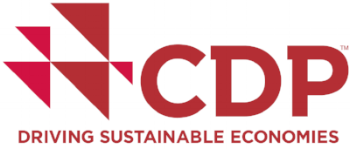NRDC recently posted the first of a six part blog series by its “Canada expert” Anthony Swift, an American attorney in Washington, DC. It is riddled with inaccuracies, misleading claims, and bias.
Here are just a few of the most egregious examples:
Swift makes the assertion that the boreal “plays a significant role in helping to regulate the global climate by holding at bay massive amounts of greenhouse gases emissions.”
Swift fails to mention that forest management actually enhances the boreal’s ability to absorb greenhouse gases, as recognized by the U.N. International Panel on Climate Change.
He also leaves out that Resolute has been an industry leader in reducing greenhouse gas emissions, cutting its carbon footprint by 73% since 2000.
Next, Swift purposefully conflates forestry terms, stating “logging plays a major role in the degradation [of the boreal forest].”
What Swift calls ‘degradation’ includes natural disturbances like fires, insects, or disease, and is not synonymous with deforestation.
Less than 0.5% of Canada’s boreal forest is harvested each year and Canada’s annual deforestation rate is less than 0.02%.
He implies Resolute’s practices have “direly threatened woodland caribou” in the Canadian boreal. And later revisits the claim, bemoaning Resolute’s “lack of faith in following through on its commitment to ensure caribou survival.”
There are more caribou in Canada than deer, moose, and elk combined. With nearly 4 million caribou spread across the country, they represent the most abundant wild hoofed animal in Canada.
In fact, the majority of the herds in the provinces where Resolute operates are considered “as likely as not to be self-sustaining” or “likely to be self-sustaining.”
Swift asserts that “Resolute has chosen to challenge freedom of speech and undermine meaningful dialogue with stakeholders engaged in proactive conservation efforts.”
Freedom of speech is not a license to slander, libel and defame. By Greenpeace’s own admission in recent legal filings, their campaign in the boreal consists of “non-verifiable statements of subjunctive/ subjective opinion” and “rhetorical hyperbole.”
We have attempted to resolve misleading activist campaigns through open discussion and now are taking our case to court where a judge and jury can decide on the legality of the conduct of Greenpeace and like-minded activists.
Swift then suggests “Resolute has now overseen a 46 percent decrease in the area of its woodlands certified by FSC.”
NRDC is crediting Resolute with managing over 5.5 million hectares more than we ever have. He also fails to note that we have discontinued management in a number of regions since 2012, as a result of mill closures, and therefore have not pursued forest management certification in the forests supporting those former operations.
He then claims “Resolute’s actions have also led to its loss of recognition by leading conservation groups.”
Resolute’s award-winning forest management practices were recognized internationally throughout 2016.
Next, Swift implies Resolute’s award-winning forestry management has “resulted in an extraordinarily hostile approach to civil society organizations and reflect a striking unwillingness to positively engage to identify credible and lasting conservation solutions.”
Collaboration is a hallmark of Resolute, but is it for NRDC?
Our collaborative efforts with communities, First Nations, NGOs, and a range of other stakeholders are the cornerstone of Resolute’s business approach.
In contrast, provincial governments, forestry associations, union leaders, First Nations communities, and industry employees and retirees have condemned activist misinformation, and some have reached out to NRDC through open letters, asking to be part of the dialogue on these issues, only to receive no response.
Last summer, over 4,000 people marched through the streets of the small northern Quebec town of Saint-Félicien, demanding an end to misleading activist campaigns.
Towards the end the piece, Swift recommends Resolute “drop its litigation against public interest organizations, cease its attacks on the FSC system, and ensure free, prior and informed consent from First Nations on their territories.”
Swift’s “recommendation” is the product of his own warped perception of the reality in the boreal.
In the wake of Greenpeace and its codefendants’ admissions that their campaign in the boreal “does not hew to strict literalism or scientific precision” NRDC has taken up the gauntlet and parroted baseless claims in a show of support (and a fundraising push).
Furthermore, Resolute remains a member of the Forest Stewardship Council® (FSC®) and successfully maintained our existing FSC certifications throughout 2016.
Our certification in NW Ontario has been reinstated and we recently maintained our certification in the Abitibi region of Quebec. With our recent acquisition of a second sawmill in Senneterre (Quebec), Resolute has added nearly 300,000 ha of FSC certified forests to the area we manage, covering more land area than the state of Rhode Island. We continue to be one of the largest holders of FSC forest management certificates in North America.
One of the 17,000 First Nations employees in the forest products industry.
And finally, Resolute has extensive consultative and economic partnerships with First Nations and has created and sustained substantial benefits for these peoples through shared economic participation in the forestry business. We aren't aware of any similar actions from NRDC.
More than 17,000 Aboriginal people work in the forest products industry and the sector’s activities involve more than 1,400 Aboriginal businesses.
Swift finishes his “expert” opinion piece by stating that “It is time to get back to the bigger goal of conserving the boreal forest and a real commitment to sustainable forestry.”
The greatest threat to the boreal is misinformation spread by environmental activists, like Swift, who don’t respect the views and interests of those who live and work there.
The forests in which Resolute operates are, as international experts agree, among the very best-managed in the world.
UPDATE (2/27/2017): At the time of this posting, NRDC had offered no response to an open letter cosigned by the Québec Forest Industry Council, Ontario Forest Industries Association, and the Forest Products Association of Canada. On February 27th - three days after this response went live - NRDC offered a reply that failed to answer direct concerns and cited studies commissioned by NRDC themselves and by other environmental organizations. Additionally, Swift’s article was amended to reflect some of the sloppy errors noted in our treatment of his original post.




